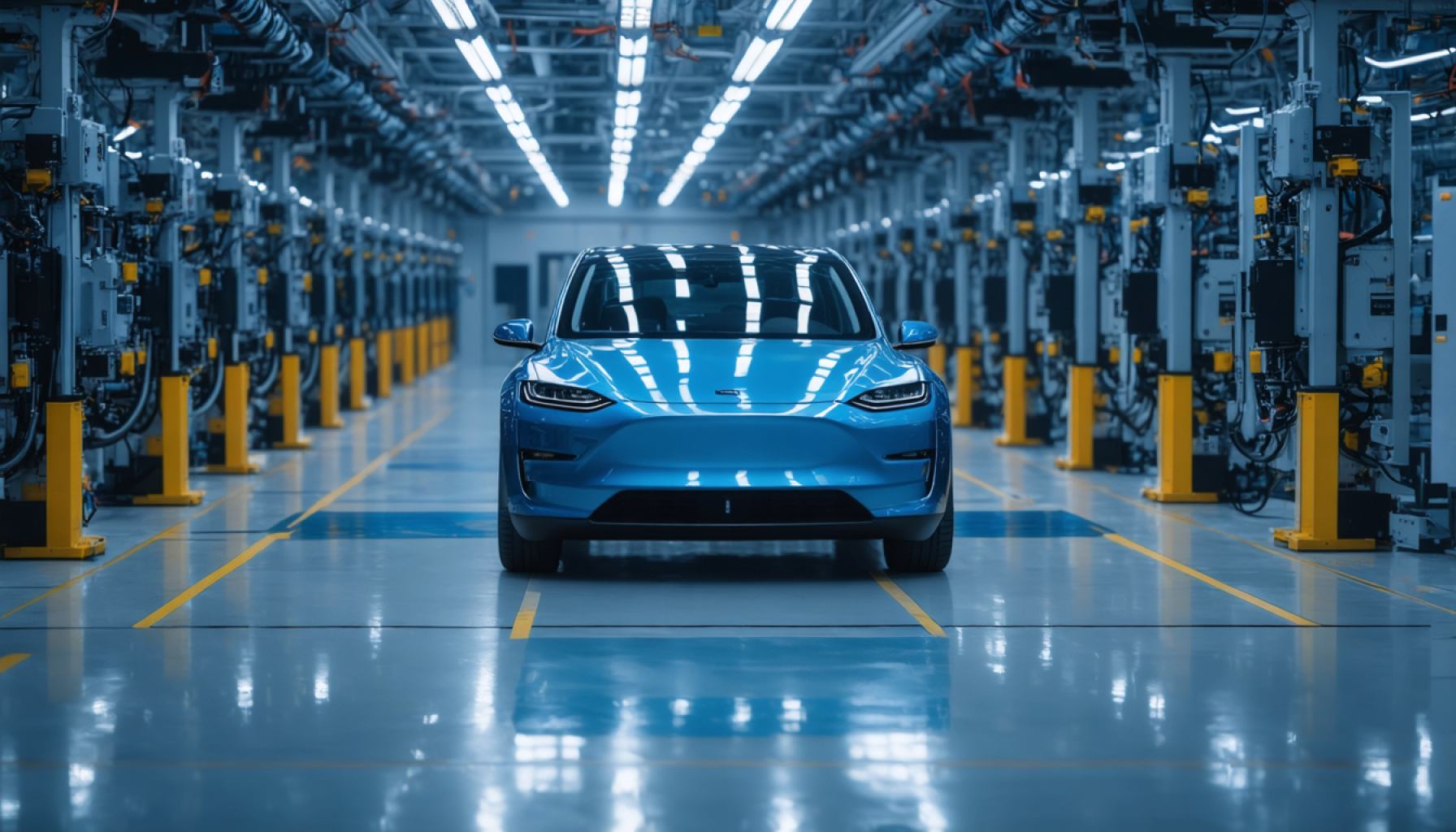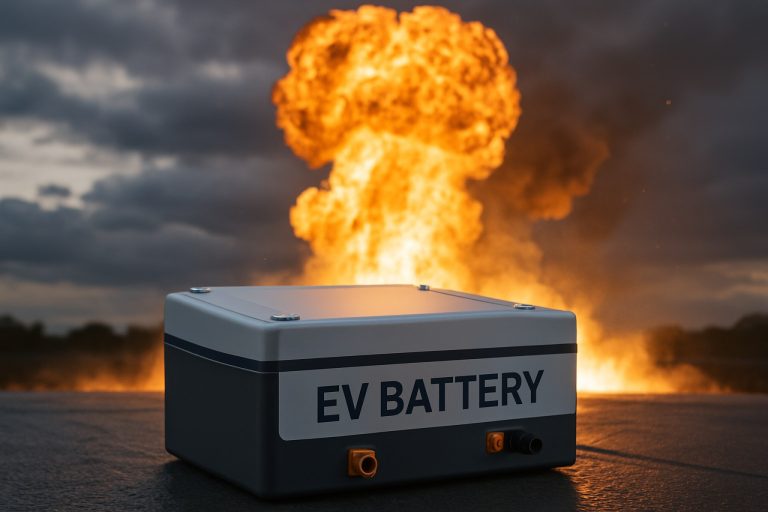
- South Korean consortium, led by LG Energy Solution and partners, withdrew from a $7.7 billion EV battery project in Indonesia.
- This initiative aimed to create a comprehensive value chain in Indonesia’s resource-rich nickel reserves.
- The decision was influenced by a global market shift, referred to as the “EV chasm,” indicating a stall in growth.
- Despite the setback, ongoing projects like the Hyundai LG Indonesia Green Power battery plant remain active.
- Indonesia, the top global nickel producer, holds potential for future EV-related initiatives.
- The situation highlights the need for adaptability in the face of volatile economic and technological landscapes.
Amid the vibrant backdrop of Indonesia’s sprawling nickel reserves, a dramatic pivot has unfolded within the electric vehicle industry. With promises of transforming Southeast Asia into a linchpin for EV battery production, a consortium of leading South Korean companies has made the startling decision to retract from a colossal 11 trillion won ($7.7 billion) venture. This grand initiative, orchestrated by giants like LG Energy Solution, LG Chem, and LX International, envisaged an all-encompassing value chain rooted in this resource-rich land. The blueprint promised to encompass every phase—from the extraction of raw materials to the refined finesse of battery cell production.
Yet, this ambitious dream is now shadowed by the chilling realities of a global market shift. The term “EV chasm” whispers through boardrooms, denoting a growth spurt that has suddenly hit a speed bump. In stark contrast to the booming demand that once electrified the sector, a transitional stall has emerged, shaking foundational plans and forcing industry players into defensive realignments.
Conversations between the consortium and the Indonesian government gave birth to the retreat, as economic landscapes posed daunting questions. The worldwide appetite for EVs flickers uncertainly, and with it, the industrial optimism has waned, stalling what was to be a transformative project. Yet, silver linings persist. Existing ventures in Indonesia, such as the Hyundai LG Indonesia Green Power battery plant, remain steadfast, serving as bastions of stability amid uncertain seas.
Indonesia, crowned as the globe’s reigning nickel producer, still harbors the potential for future endeavours. The nickel-rich soil foretells a future where the global transition to cleaner energy continues its march, albeit with new strategies and partnerships.
The recalibration of this project serves as a clarion call to the industry. It underscores the volatility inherent in evolving technologies and the critical need for agility. As this narrative unfolds, it offers a crucial insight: economic environments are as changeable as the tides, and adaptability stands as the indefatigable hero on the path to innovation.
The Seismic Shift in EV Battery Production: What You Need to Know
Introduction
The electric vehicle (EV) industry is at a crossroads, driven by fluctuating global demand and shifting market dynamics. The recent withdrawal of a South Korean consortium from a massive $7.7 billion project in Indonesia underscores the challenges and opportunities within this rapidly evolving sector. Despite this setback, Indonesia’s abundant nickel reserves present a promising future for sustainable energy endeavours.
Key Insights and Trends
1. Understanding the “EV Chasm”
– Climbing and Plateauing Demand: Initially, the EV market saw exponential growth, fueled by innovation and eco-conscious consumers. However, a global shift—dubbed the “EV chasm”—suggests a cooling period where demand growth is stabilizing rather than skyrocketing.
– Price Fluctuations: EV adoption is sensitive to price trends. Recent fluctuations in raw materials and battery prices have impacted the business calculus for large investments.
2. Indonesia’s Strategic Position
– Nickel Dominance: As the largest global nickel producer, Indonesia remains pivotal for future EV battery production. Nickel is a crucial component in lithium-ion batteries, which power EVs.
– Existing Ventures: Facilities like the Hyundai LG Indonesia Green Power battery plant exemplify successful strategic investments that continue to operate and contribute to the local and international markets.
3. Market Forecast and Industry Trends
– EV Market Growth: While recent hits predict a temporary slowdown, long-term forecasts remain hopeful, projecting steady growth and a major transition to EVs by the 2030s.
– Industries Shifting Focus: Companies are increasingly looking into sustainable and cost-effective manufacturing processes, including recycling and the use of alternative materials to reduce dependence on volatile raw material markets.
4. Potential Challenges
– Economic Instability: Global economic fluctuations can deter large investments. Companies must hedge against economic uncertainties and adapt to rapidly changing market conditions.
– Technological Volatility: Rapid advancements in battery technology may render current investments obsolete. Businesses must stay agile and continually innovate to maintain relevance.
Practical Recommendations
– Diversified Investment Strategies: Companies should spread their investments across different regions and technologies to mitigate risks associated with market volatility.
– Focus on R&D: Investing in research and development can unlock new materials and technologies, reducing dependence on any single resource like nickel.
– Public-Private Partnerships: Collaborations between governments and private entities can support infrastructure development, incentivizing future investments in the EV sector.
Conclusion
The recent retraction of the South Korean consortium highlights the need for resilience and adaptability in the face of global market shifts. Indonesia’s substantial nickel reserves still represent a major strategic advantage for future sustainable energy solutions. As businesses navigate the unpredictable landscapes of global markets, strategic planning, innovation, and collaboration will be key to capitalizing on emerging opportunities.
For further reading, visit the official website of Indonesia’s Government to explore their ongoing and future initiatives in the energy sector.
—
This overview offers actionable insights and recommendations to help stakeholders make informed decisions in the dynamic EV market landscape. Key takeaways include understanding the market’s volatility, leveraging Indonesia’s natural resources, and adopting comprehensive strategies that prioritize flexibility and sustainability.



